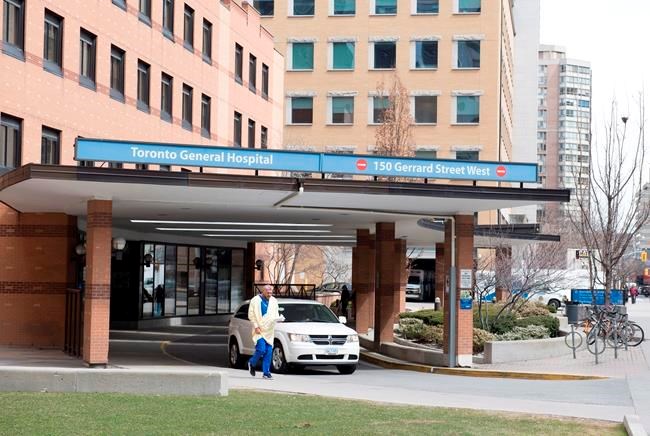OTTAWA — Transplant centres across the country have massively scaled back organ transplants as hospitals try to make sure they are able to accommodate COVID-19 cases.
Living-donor surgeries have largely shut down across the country, and deceased-donor transplants are happening only when the case is urgent.
Dr. Atul Humar, past president of the Canadian Society of Transplantation, said that means many organs are not going to good use.
"There's some donors, deceased organ donors, and we're not sending teams to procure those organs," said Humar, who is also the director of the transplant program at Toronto General Hospital.
"It's quite tragic."
Patients who go through certain types of organ donation often require time in the intensive care unit on a ventilator — resources desperately needed by patients with serious cases of COVID-19.
At Humar's hospital, organ transplant surgeries have decreased by about 80 per cent, though the numbers vary from province to province.
The slowdown in transplant surgeries also protects patients, because they must be put on drugs to suppress their immune systems after their surgeries to prevent their bodies from rejecting the new organ.
"Basically transplant recipients are forced to become immunocompromised," said Dr. Sam Shemie, the medical advisor for organ donation at Canadian Blood Services.
That puts them at much greater risk if they come into contact with the novel coronavirus, Shemie said, so that needs to be weighed against the benefit of the transplant in each case.
Still, he said that unlike countries such as Spain or the United Kingdom, Canada's health system is not so overloaded that it can't perform urgent transplants when needed.
More than 200 people died on the waiting list for organ donation in Canada in 2018, according to the latest statistics from the Canadian Organ Replacement Register, which is managed by the Canadian Institute for Health Information.
"My biggest fear is that our patients who are waiting for a transplant will die because they've waited too long," Humar said.
People who need kidney transplants are most affected by the reduction in surgeries. While kidneys are by far the most in-demand organ, and transplants are far preferred to dialysis as treatment, people can survive on dialysis for a long time.
"Even in the best of times, there was a long waiting list for kidney donations," he said. "On average a recipient will wait for five years or longer."
One reason is patients need to wait not only for an organ to become available, one that is the right match for them.
If a needed organ comes up for someone who is difficult to match, they will likely still get their surgery because it could be that person's only chance, he said.
Doctors also need to be careful about transplants that could transfer the virus to the recipient along with the new organ.
That means that all donors must be screened for COVID-19 to avoid infecting the recipient.
Restrictions on organ donations will ease as things start to get back to normal, Shemie said.
All these delays could mean longer waits for those patients when the pandemic ends and surgeries ramp up again.
Living-donor surgeries can be planned for and scheduled in advance when the pandemic is finally clear, Shemie said. But hospitals and patient who need transplants from deceased donors are largely at the mercy of whatever donated organs are available at the time.
Shemie said there was a massive response to Canadian Blood Services' call for blood donations.
He hopes people show the same willingness to give when it comes to registering for organ donation, once the COVID-19 crisis is over.
This report by The Canadian Press was first published March 30, 2020.
Laura Osman, The Canadian Press




